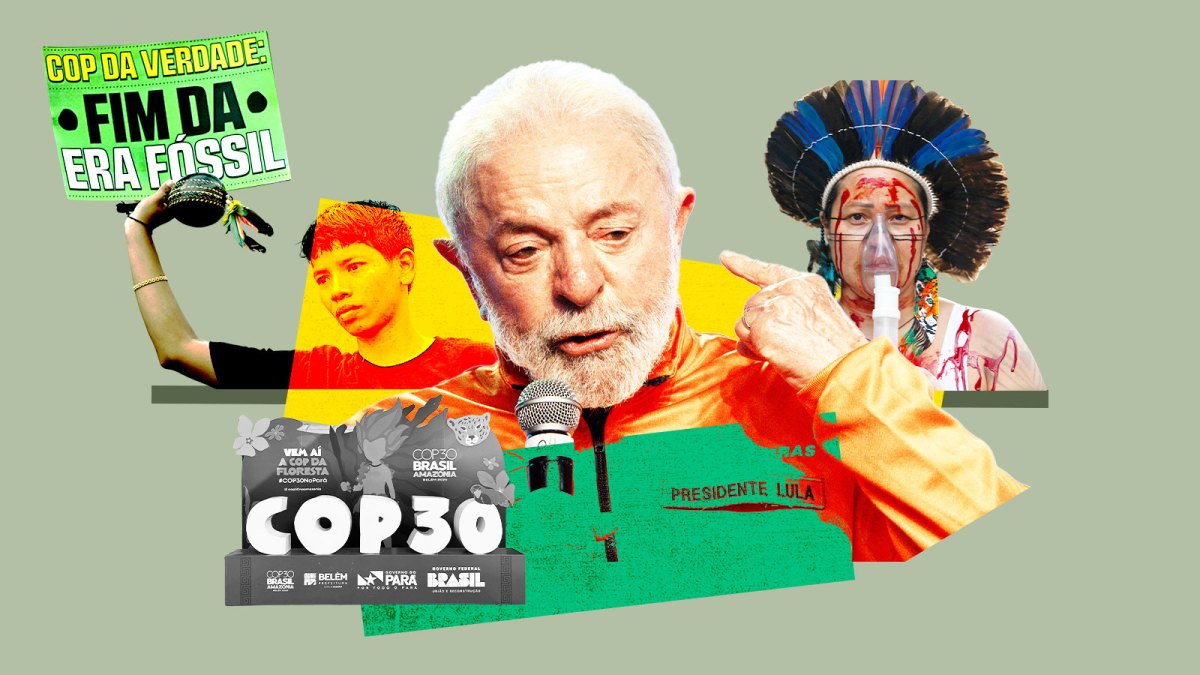World
Lula’s Approval of Oil Drilling in Amazon Raises Concerns

The Brazilian government has approved oil drilling in the Amazon rainforest, a decision that has drawn sharp criticism from environmentalists and indigenous communities. This move comes as Brazil prepares to host the COP30 climate conference in December 2023, raising concerns about the commitment to environmental preservation under President Luiz Inácio Lula da Silva.
Under Lula’s leadership, many had anticipated a strong focus on protecting the Amazon, especially following the controversial presidency of Jair Bolsonaro, who was widely criticized for his environmental policies. However, the recent approval to open up indigenous territories for oil extraction marks a significant shift in direction.
Implications for Indigenous Lands and Environmental Protections
The areas now opened for drilling include lands that had remained untouched during Bolsonaro’s term, which were deemed crucial for environmental conservation. Indigenous territories historically have been protected from industrial development. The decision by Lula’s government, specifically authorized by the National Agency of Petroleum, has sparked outrage among environmental advocates and indigenous leaders.
Critics argue that this move undermines Brazil’s earlier commitments to combat climate change and protect biodiversity. Raoni Metuktire, a prominent indigenous leader, expressed his dismay, stating that the government is prioritizing corporate interests over the rights and welfare of indigenous peoples. The ramifications of this decision could extend beyond environmental degradation, threatening the cultural and social fabric of indigenous communities.
Environmental organizations have also voiced their concerns, emphasizing that oil drilling in these sensitive areas could lead to irreversible damage. According to a report by Greenpeace, the extraction process can lead to deforestation, water pollution, and habitat destruction, further exacerbating climate issues.
Political Context and Global Reactions
The approval comes at a time when Lula’s administration faces increased scrutiny regarding its environmental policies. While Lula initially campaigned on a platform of environmental protection and sustainability, critics now question whether his government will prioritize these ideals over economic growth driven by fossil fuel extraction.
International reactions have been mixed. Some world leaders and environmental groups have expressed disappointment, urging Brazil to reconsider its approach to the Amazon. The timing of this decision, just months before COP30, is particularly sensitive. Many environmental activists had hoped Brazil would use the conference as a platform to showcase its commitment to climate action rather than as a backdrop for promoting oil exploration.
As the world watches, Lula’s government must navigate the complex balance between economic development and environmental stewardship. The decisions made in the coming months will significantly impact Brazil’s reputation on the global stage, especially regarding its role in addressing climate change.
The discourse surrounding oil drilling in the Amazon reflects broader tensions between development and conservation, a debate that will likely intensify as the COP30 conference approaches. The future of the Amazon and the rights of its indigenous inhabitants remain at a critical juncture.
-

 World3 days ago
World3 days agoCoronation Street’s Shocking Murder Twist Reveals Family Secrets
-

 Entertainment4 months ago
Entertainment4 months agoKate Garraway Sells £2 Million Home Amid Financial Struggles
-

 Entertainment3 months ago
Entertainment3 months agoAnn Ming Reflects on ITV’s ‘I Fought the Law’ Drama
-

 Health3 months ago
Health3 months agoKatie Price Faces New Health Concerns After Cancer Symptoms Resurface
-

 Entertainment3 weeks ago
Entertainment3 weeks agoCoronation Street Fans React as Todd Faces Heartbreaking Choice
-

 World3 weeks ago
World3 weeks agoBailey Announces Heartbreaking Split from Rebecca After Reunion
-

 Entertainment5 days ago
Entertainment5 days agoTwo Stars Evicted from I’m A Celebrity Just Days Before Finale
-

 World6 days ago
World6 days agoKevin Sinfield Exceeds Fundraising Goal Ahead of Final Marathons
-

 Entertainment3 months ago
Entertainment3 months agoCoronation Street’s Carl Webster Faces Trouble with New Affairs
-

 Entertainment3 months ago
Entertainment3 months agoWhere is Tinder Swindler Simon Leviev? Latest Updates Revealed
-

 Entertainment4 months ago
Entertainment4 months agoMarkiplier Addresses AI Controversy During Livestream Response
-

 Science2 months ago
Science2 months agoBrian Cox Addresses Claims of Alien Probe in 3I/ATLAS Discovery





















